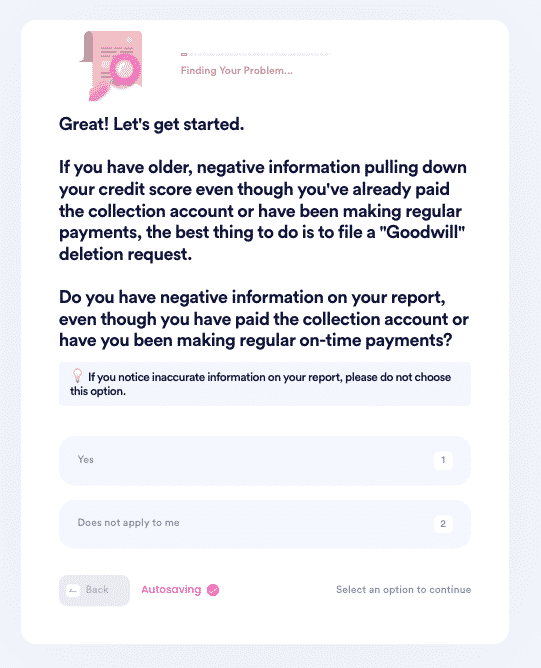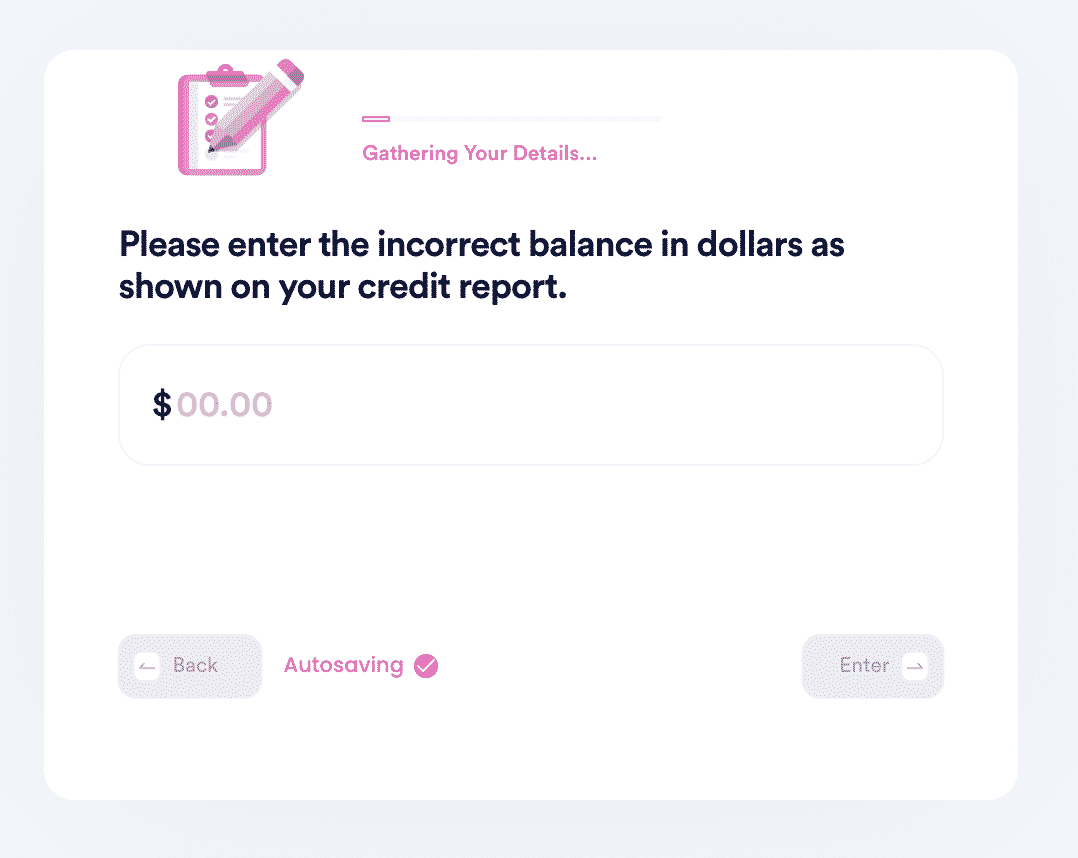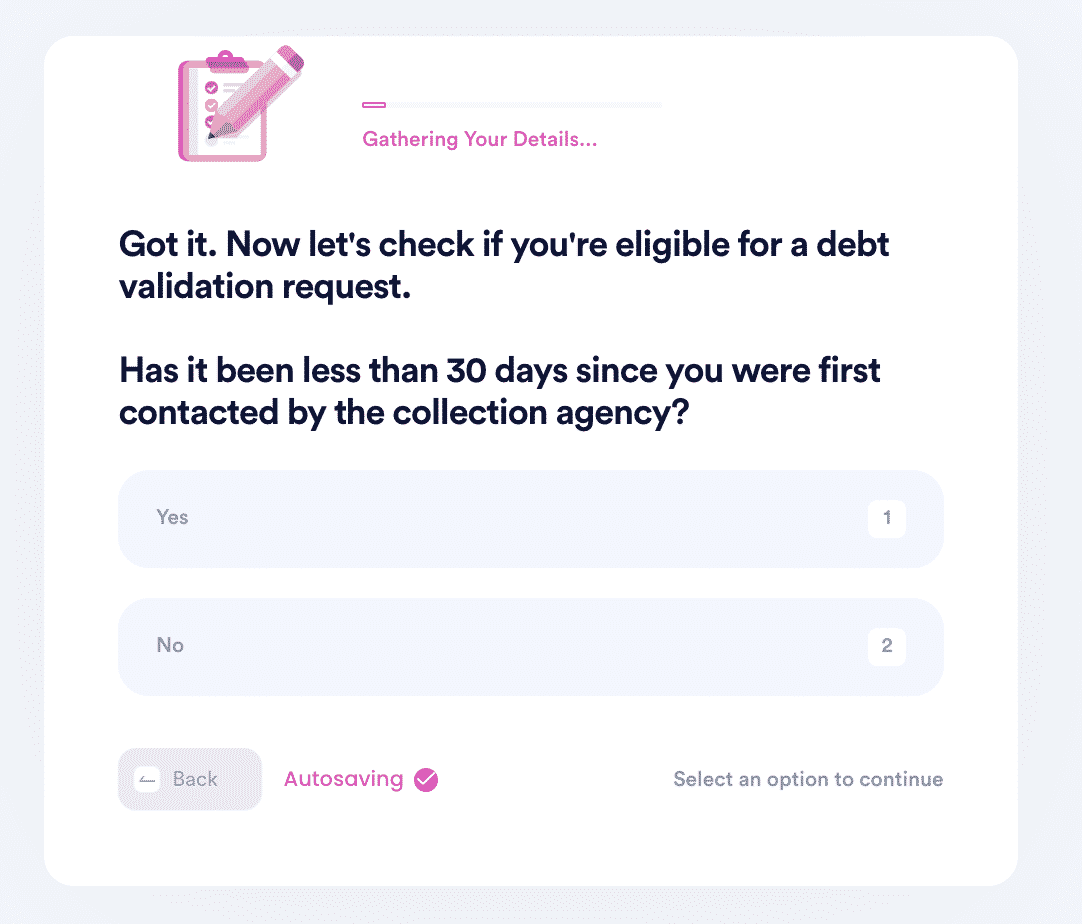How to Dispute a Medical Bill on Your Credit Report: Sample Letter
If there areor judgments on your credit report, make sure they are all accurate. If you find any inconsistencies or wrong information, you have the right to have that derogatory information removed. Keep reading to learn DoNotPay's tips on writing a for medical debt, and a letter asking the provider to validate—confirm—that debt.
What Is a Medical Bill Dispute Letter?
The last thing you need to worry about after an illness is your credit score, but the inconsistencies with insurance claims and billing offices have made that a near impossibility.
If you , or with what the provider is reporting to the credit bureaus, you can officially dispute that information in order to remove that information from your credit report. The is written to inform the billing office of the errors, and to request, that those errors are corrected.
Types of Medical Bill Errors
Medical bills are only as accurate as the individual who's coding the information into their billing system. So there is an element of human error. These are the most common errors.
- Typos
- Duplicate charges
- Charges for procedures that were canceled or not performed
- Incorrect charges for procedures
What to Include in a Medical Bill Dispute Letter
The patient, a family member, or another authorized representative can send the letter on the patient's behalf. It is best that you stick to the facts and refrain from personal comments about care or diagnosis— that's for a different audience.
This is the information you need to include.
| Addressee information: | Identify the medical provider, including name, location (many have several offices), and dates of service |
| Patient information: | Full name, address, phone number, and e-mail address. |
| Invoice information: | Introduce the bill itself; the invoice number and the date the bill was issued. |
| Subject of dispute: | Identify all the errors in the bill. Include any documentation to support your claim. Some |
| Course of action: | Here, you ask the billing organization to correct the errors, remove any negative information from a credit report, and refund any money that was overpaid or paid as a result of the incorrect billing |
| Signature: | The letter should be signed to validate that the information in the letter is accurate. |
Request the Provider to Validate the Medical Debt
If medical debt has gone to a collections agency, you still have recourse for getting the debt removed from your credit report.
Ask the collections agency to validate the debt—that is, confirm that you actually owe the amount on the bill and that you were treated for those listed services— by the collection agency. Per the Fair Credit Reporting Act, a vendor or collector has thirty days to validate that their accounting is correct and true.
Here are the components of a validation letter.
| Complainant information: | Your name, relationship to the patient, address, phone number, and e-mail address. |
| Collection or billing agency information: | Names, addresses, dates of service, and amount of debt. |
| Service provider: | List the medical practice and individual providers. |
Assert Your Rights
Right at the start of the letter, state your rights as codified under the Fair Debt Collection Practices Act (FDCPA). Also, refer to HIPAA—the Health Insurance Portability and Accountability Act—and your rights under this law. Specifically, that you have not given permission for your providers to release your medical information to a third party. HIPAA does allow for the release of some information, but that is fairly limited. You are asking the collection agency to validate two things: HIPAA authorization and the debt itself.
Request this information in the letter.
- Breakdown and itemization of all fees, including collection fees,
- Provide a copy of the patient or guardian's signature authorizing the release of medical information
- Cease reporting the debt to the credit bureaus until the debt is validated
Before you end the letter, point out that you are challenging the validation under FDCPA, and that violations of either HIPAA or FDCPA carry stiff penalties. Restate your request for full and itemized documentation of the information they received from the health care provider in connection to this "alleged debt". Be sure that you correspond in writing, and use certified mail—so you will know when the letter is received.
Let DoNotPay Draft Medical Debt Letters For You
If you're nervous about writing these letters, DoNotPay can do it for you. In just a few easy steps, we can start the process of correcting your medical debt.
Here's how.
- Search Clean Credit Report on DoNotPay.

- Prepare a recent copy of your credit report that you can use as reference.

- Let us guide you through the 4 potential options:
- If you've already paid off your debt, we'll help you file a Goodwill Removal Request to get it removed.

- If you notice any errors in your report (we have a list of common errors you can use!), we'll help you file a credit dispute to the creditor or major credit bureaus.

- If there are no errors, we'll check if you're still eligible to file a debt validation request. If they can't validate your debt, they're required to remove it from your report and they can't collect it!

- Lastly, if none of the above options work, we'll help you file a pay-to-delete negotiation letter. You can customize the amount you are willing to pay in exchange for getting the item removed.

Collections agencies survive by skating close to the ethical edge with their scare tactics, but you have the right to demand a true and correct medical bill.
Does DoNotPay Do Anything Else?
DoNotPay is an intelligent algorithm that can help with almost any problem you may have, financial or otherwise. We can help you with bills, canceling accounts, breaking leases, and getting city repairs done, the list is pretty well endless. DoNotPay is like your personal concierge for getting things done.
 By
By